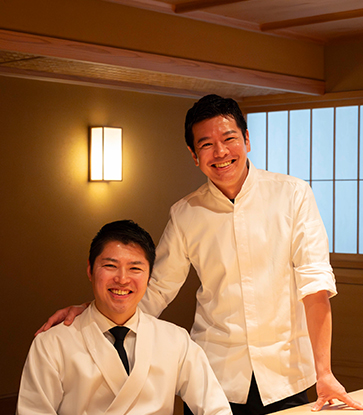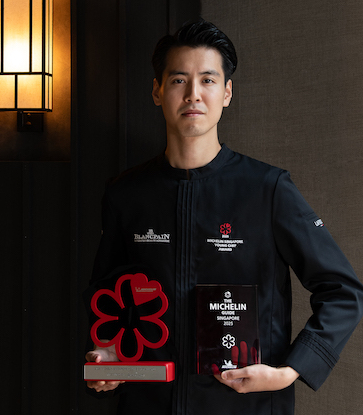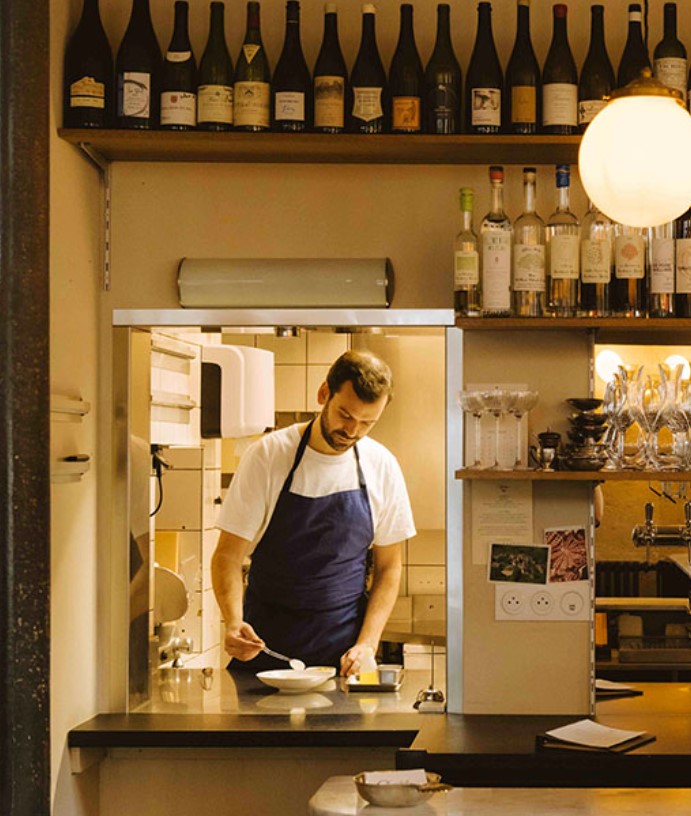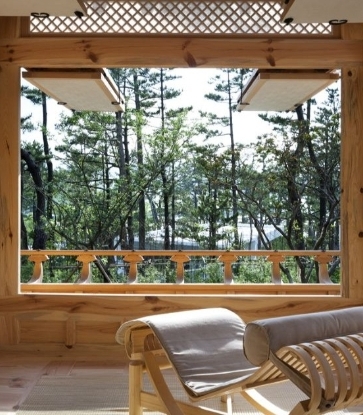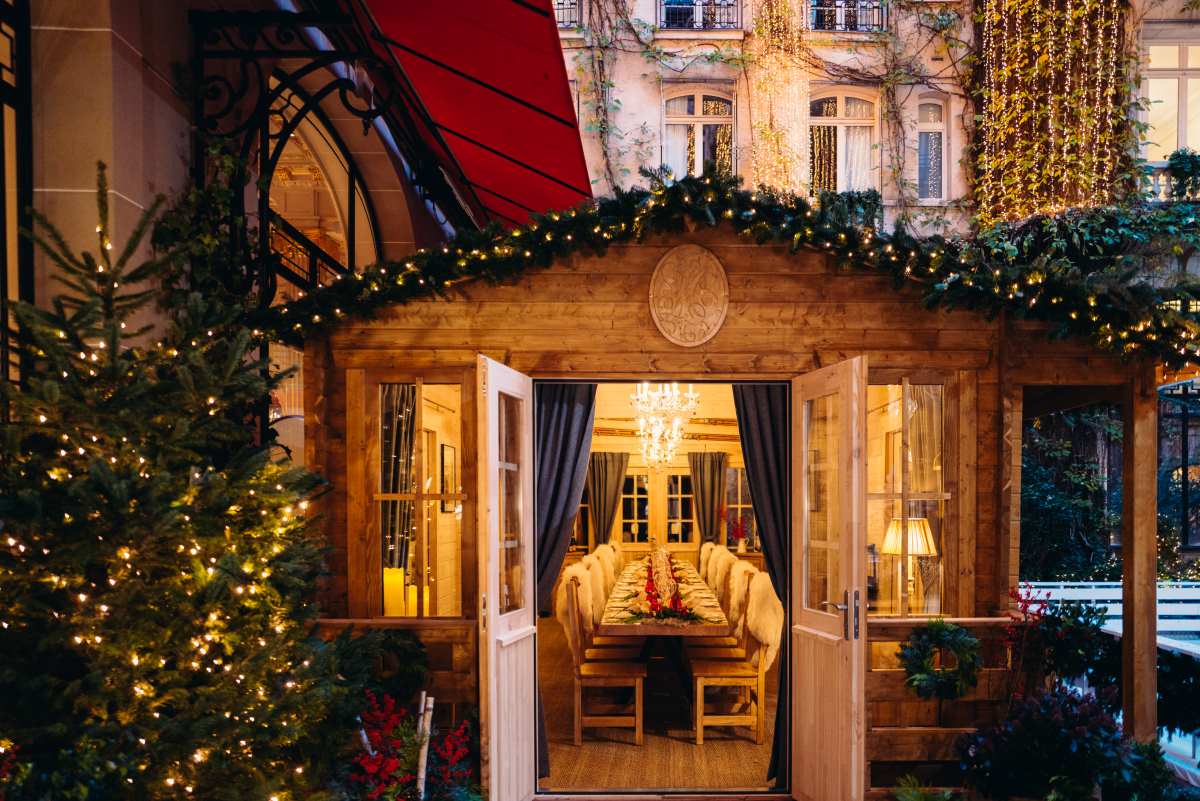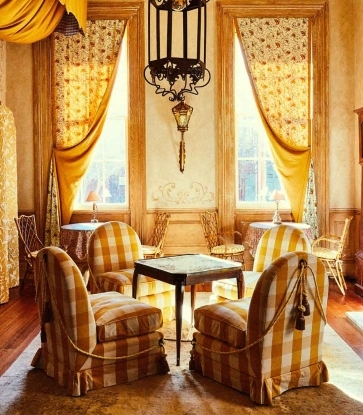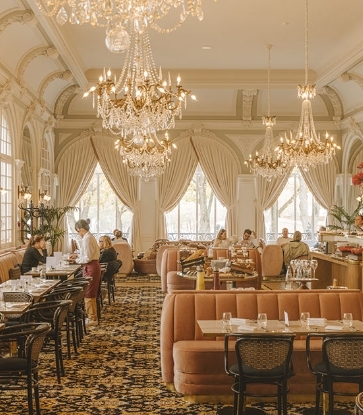Sustainability is a very meaningful word for myself. The main link between culture and nature is food. For us in Brazil, we deeply believe that the conservation of the Amazon is more than protecting the river, the seed or the forest. It is actually protecting the man who lives inside of the forest, nearby the river.
Sustainability also makes local people proud to be local. Indigenous people in Brazil have suffered a lot, but as a result, they know a lot. We used to say that the forest is like a shopping mall. In a shopping mall, you can have your credit card and you can buy whatever. In the forest you can find whatever you need, but the problem is that the forest does not accept your credit card. The only single value that the forest accepts is knowledge and that knowledge is something that is passed down through generations and generations of indigenous people.
So it is thanks to their knowledge and their culture that we can serve ingredients from the Amazons and spread word of their delicious flavour to everyone who comes to Sao Paulo, Brazil, and get people super excited with these flavours and possibilities. When we mention the Amazon forest to people, they say “Wow!” or sometimes they think it can be scary or dangerous, but we try to make it friendly and delicious.
“"In the forest you can find whatever you need, but the problem is that the forest does not accept your credit card."”

Finding the confidence to use indigeneous produce
As a chef, I had a classical foundation. At the age of 19, I went to culinary school in Belgium, at the Hospitality School of Namur, and I worked in a Michelin-starred restaurants in Italy and France, including the restaurants of Jean Pierre Bruneau and Bernard Loiseau before I moved back to Brazil. In Brazil, people always asked me to cook French or Italian food, which I tried to do but I did not have the same ingredients and found it super difficult to deliver the same flavours.
So I started step-by-step, first by replacing European ingredients with indigeneous Brazilian ingredients. People started to love it, so I started to push the boundaries a little bit more. I opened D.O.M. 20 years ago and give years later, I started to become recognised as a chef. It was my pride in being a Brazillian and my confidence as a chef that pushed me towards the flavours that I always had in my mind.
READ MORE: The First Day We Got Our Stars: Alex Atala
After I became more confident about my food and my culture and my cultural cuisine, I started looking to buy ingredients and I could not find those items on the market. I started to call my friends from the Amazon and asked me to send me jambu, some local fish, and gradually they put me in contact with the fishermen and the local people in the forest.
After 15 years we decided to formalise our efforts by establishing an non-government organisation, the Instituto ATA, or the ATA Foundation. We work together to help local people but also to let diners at D.O.M. taste those ingredients and those flavours and through ATA know more about sustainability and the origin of those flavours.
As people, we have been educated and trained to love money. We love money so much that we would not throw away even a single coin. If you throw a coin, it is into a fountain out of the desire to make more money. Yet we still throw away food, and sometimes food has much more value than a little coin. One of our aims at ATA is to reveal to people the real value of food. This is something that I try to propose to people in a delicious way, as a chef.
“We love money so much that we would not throw away even a single coin. If you throw a coin, it is into a fountain out of the desire to make more money. Yet we still throw away food.”
Reviving local flavours
We have several projects going at the ATA Foundation right now. Some of the ingredients we are researching are a kind of chilli the local people call baniwa, wild mushrooms and wild cacao from the Amazon and wild vanilla from the central part of Brazil.
RECOMMENDED READING: On The Menu At The MICHELIN Guide Hong Kong Macau 2020 Gala Dinner
In the city of Sao Paulo, we have an old market that was destroyed and forgotten. Through the foundation, we rebuilt the market and we now sell more than 700 different types of ingredients from all over Brazil in the market at a very affordable price so regular people can even have those ingredients as ingredients in their daily food.
The ingredient that fascinates me most is the manioc, or some call it yuca or cassava — it has many names. For us in South America, manioc is as important as rice is to Asian cuisine or wheat to European cuisine. We can do everything with it. We can deep fry or mash it, we can make flour and alcohol drinks with it, or pancakes that we call tapioca.
Of the many methods of preparation, my favourite one is called tucupi. It is made from the juice from the manioc, lightly fermented according to the local indigenous tradition and then boiled for one entire day with local herbs until it becomes a super special flavour. If you close your eyes and taste tucupi, you taste the Amazon.

Sustainability in food and travel
We are currently working to open a new hotel, a sustainable hotel, in Sao Paulo in 2022. The D.O.M. Hotel will be a nice size, about 160 rooms, and our eye for sustainability and Brazilian culture will be everywhere, from using nature to support us but also for us to support nature. It's a full circle. We hope to host people, to feed people, to let people take a shower in a good and environmentally friendly way. Our furniture will be made of recyclable materials made by local people. We will use clean energy and water, waste less energy and less food.
RELATED: MICHELIN Debuts New Sustainable Gastronomy Icon
D.O.M. will also be moving to the hotel, after more than 20 years in the same place. The hotel will have five other restaurants, all of them focussed on Brazilian flavours and Brazilian culture. Four of them will be very casual, affordable and friendly. We will propose flavours that will connect people, as we believe that we spend too much time connecting with our phones and not enough time connecting with other people. We will question why we overvalue animal protein and undervalue vegetables, why people expect to be served steak with fries and not fries with steak.

The future of food
Let me ask you this: which is the most powerful social media on earth? Is it Twitter, Instagram or Facebook? No. What connects billions of people on planet earth is food, so the future of food is very important for humanity.
We are always thinking about what the future of food is, but to try to understand the future, let’s look back, to 40 or 50 years ago. Back in the day, people supposed that the food of the future would be pills for astronauts. But it isn’t. It didn’t happen. Food is still food. So what will be the food of the future? The same food that we have today, with a small difference. I don't believe that we have to teach people how to cook. I believe in human beings and that we are good by nature. I only wish to ask people to consume according to their own ethical values. Do not buy ingredients, do not serve, do not cook and do not eat food that you do not believe in.
The future of food is so simple: keep cooking, just with good ingredients that are good for you, good for me and good for us.
“Back in the day, people supposed that the food of the future would be pills for astronauts. But it isn’t. It didn’t happen. Food is still food.”
Insects as alternative protein
I deeply believe that the cheapest, the most environmentally friendly protein that we can have is insects. It is super healthy, minimum impact, very affordable and super accessible. When we talk about the possibility to serve insects as food, let’s ask ourselves this question: why is it okay to serve insects as feed for our animals, but not as food? For example, what is honey? Why do we eat honey and think it is delicious, when it is in fact, bee vomit. Yet we can’t accept bees, or many different types of insects.
The US Food and Drug Administration accepts up to 60 insect pieces per 100 grams of chocolate and and up to 30 insect fragments for every 100 grams of peanut butter. So let's face the truth: we eat insects. Maybe we don't know that we eat them, but we eat them. I know for many people eating insects can be scary, but we don't need to eat disgusting things.
In the fine-dining world, maybe just a few insects can be useful — I may serve an ant on my menu because it is delicious — but for the planet, for many many people, they can be a very reasonable way to feed children and people who need more food, more protein, and a better life.
RELATED: Crunch Time: 8 Things To Know About Eating Insects
I hope that not only chefs but companies, too, will use insects. I believe that chefs can open a small window, but it is companies that can really deeply change things by helping us to overcome the cultural and mental block we have to eating insects. Maybe in the future, we can have snacks, candies, ice-cream, and many delicious preparations with insects, not just as a flavour but as good and healthy protein.
I’m super optimistic about it. I have a few friends already doing so with ants, such as Rene Redzepi of Noma in Denmark, Zaiyu Hasegawa of Den in Tokyo. Many Peruvian and Mexican chefs are also using ants. For us chefs, the possibility to use insects is like having a new colour for painting.

“For us chefs, the possibility to use insects is like having a new colour for painting.”
Spreading the word on sustainability
At the ATA Foundation, we are always optimistic. Even if we have had a difficult year in amazon with fire and lots of environmental problems in Brazil, we are optimistic because people are now more aware about sustainability and that is the first step to change something that we are not doing well. We are on the right path.
How many people in the world today are able to recognise an orange tree without fruits? We are so disconnected from nature, from our main source of food. Why do we overvalue money and undervalue food? Maybe because to make money, we have to work hard. But to have food, we just have to harvest — nature gives it to us for free. It is this disconnect we want to explore at the ATA Foundation. We always try to link, based on knowledge, eating to cooking, cooking to produce and produce to nature, this is the food chain. All these links are broken, so we need to reconnect them. We need to be realists and work with our feet on the ground to deliver a beautiful message and make people live better.
It may take years and years to change the way a culture thinks. But when you decide to be a chef, you know that it will be a long career that will span years, even decades. When you decide to work with sustainability, it is a lifetime commitment. It will not take years, it will take a lifetime — your whole lifetime.
“When you decide to work with sustainability, it is a lifetime commitment. It will not take years, it will take a lifetime — your whole lifetime.”



